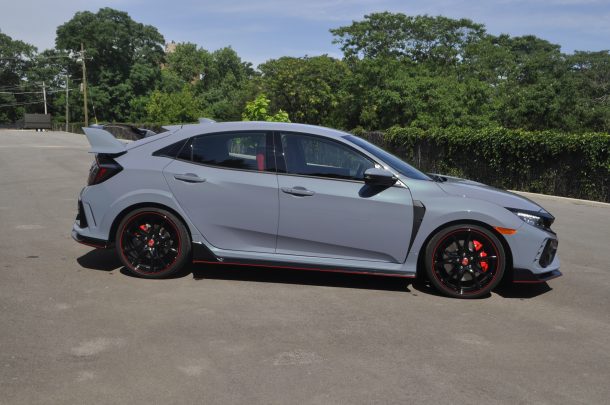Pandemic Changes Car Buying Plans, Or Has It?
The pandemic has changed car buying plans for nearly three out of four shoppers who intended to buy in the next six months. New research from Comscore Automotive Data Mart, cited in a story today by Auto Remarketing, indicated the pandemic tops the concerns of four out of ten who had intended to buy.
Shoppers are being more careful with all of their spending. They expect to do more research before buying, with income being a big factor too. What’s surprising is that shoppers are considering buying new, instead of used or certified pre-owned vehicles.
Comscore wanted to know how COVID-19 affected those who had planned to buy or lease a new or used vehicle, and what caused a shift. Almost half said the pandemic negatively affected their income, an impact greater among those ages 18-34 and 34-54 than those 55 and older. One third expected the pandemic and their economic situation to delay their car buying esearch, and as a result their purchasing timeline.
Not everyone was affected, including 55 percent who expected no changes. 27 percent said it would not change their car buying plans at all. New deals and customer assistance for buyers caused 13 percent to shorten their search. Pandemic case level changes and public transportation issues caused a revival in shoppers and sales from their April 2020 lows.
Automakers’ incentives, and affluent customers who are still buying, have reduced the effects of the pandemic. Being able to take advantage of the offers gave these buyers a lot of flexibility. Dealers adopted safety protocols at their dealerships to make consumers more comfortable, and better accommodate their needs. Their experience had improved by shopping online. They can view inventories online, get quotes, obtain loans, and set up delivery from home.
48 percent of shoppers were interested in purchasing a car completely online, up 10 percent over 2019. Automakers who expanded their online presence in response to the pandemic drove traffic to their websites. Consumers ready to buy cars should encourage manufacturers to come up with new ways to meet their needs.
[Images: Comscore, TTAC, BMW]
With a father who owned a dealership, I literally grew up in the business. After college, I worked for GM, Nissan and Mazda, writing articles for automotive enthusiast magazines as a side gig. I discovered you could make a living selling ad space at Four Wheeler magazine, before I moved on to selling TV for the National Hot Rod Association. After that, I started Roadhouse, a marketing, advertising and PR firm dedicated to the automotive, outdoor/apparel, and entertainment industries. Through the years, I continued writing, shooting, and editing. It keep things interesting.
More by Jason R. Sakurai
Latest Car Reviews
Read moreLatest Product Reviews
Read moreRecent Comments
- 2ACL I have a soft spot for high-performance, shark-nosed Lancers (I considered the less-potent Ralliart during the period in which I eventually selected my first TL SH-AWD), but it's can be challenging to find a specimen that doesn't exhibit signs of abuse, and while most of the components are sufficiently universal in their function to service without manufacturer support, the SST isn't one of them. The shops that specialize in it are familiar with the failure as described by the seller and thus might be able to fix this one at a substantial savings to replacement. There's only a handful of them in the nation, however. A salvaged unit is another option, but the usual risks are magnified by similar logistical challenges to trying to save the original.I hope this is a case of the seller overvaluing the Evo market rather than still owing or having put the mods on credit. Because the best offer won't be anywhere near the current listing.
- Peter Buying an EV from Toyota is like buying a Bible from Donald Trump. Don’t be surprised if some very important parts are left out.
- Sheila I have a 2016 Kia Sorento that just threw a rod out of the engine case. Filed a claim for new engine and was denied…..due to a loop hole that was included in the Class Action Engine Settlement so Hyundai and Kia would be able to deny a large percentage of cars with prematurely failed engines. It’s called the KSDS Improvement Campaign. Ever hear of such a thing? It’s not even a Recall, although they know these engines are very dangerous. As unknowing consumers load themselves and kids in them everyday. Are their any new Class Action Lawsuits that anyone knows of?
- Alan Well, it will take 30 years to fix Nissan up after the Renault Alliance reduced Nissan to a paltry mess.I think Nissan will eventually improve.
- Alan This will be overpriced for what it offers.I think the "Western" auto manufacturers rip off the consumer with the Thai and Chinese made vehicles.A Chinese made Model 3 in Australia is over $70k AUD(for 1995 $45k USD) which is far more expensive than a similar Chinesium EV of equal or better quality and loaded with goodies.Chinese pickups are $20k to $30k cheaper than Thai built pickups from Ford and the Japanese brands. Who's ripping who off?




































Comments
Join the conversation
Only people I know that are really buying right now are those with lots of disposable income looking for a halo car, or the unfortunate ones who have to replace a car. And even then the used market seems much hotter than new.
I would rather go to the dentist and have my teeth drilled and filled without Novocain than to buy a vehicle at a dealership.